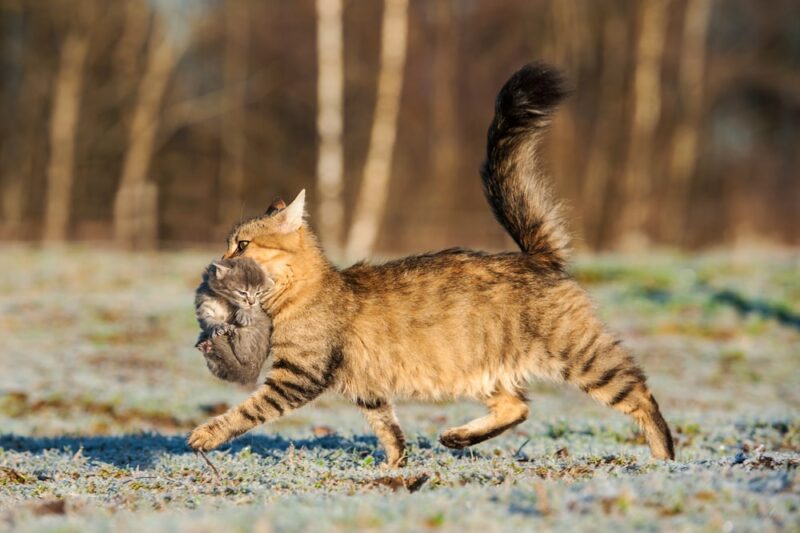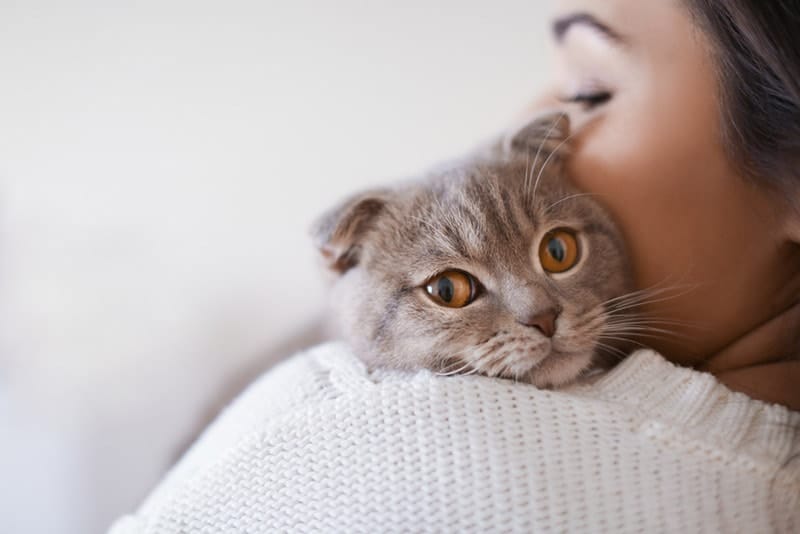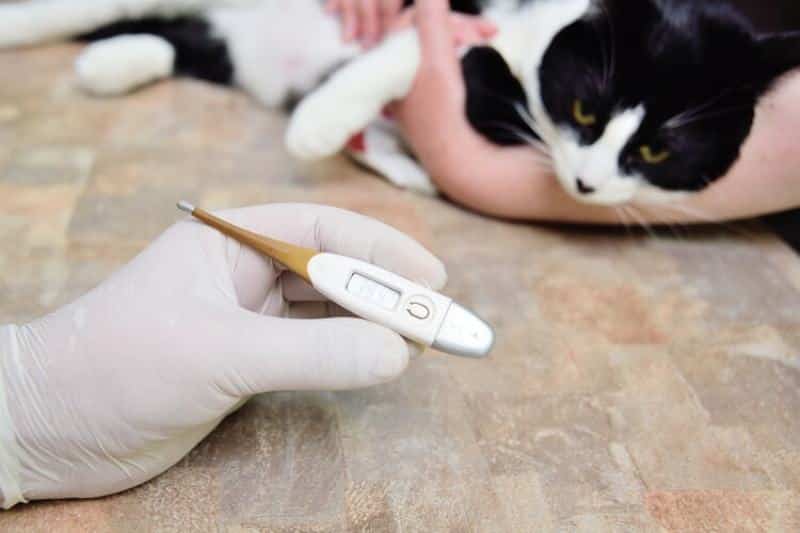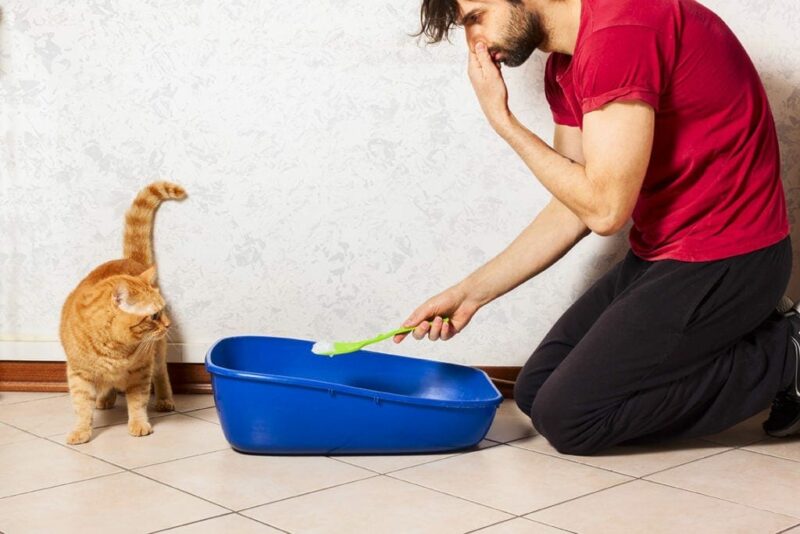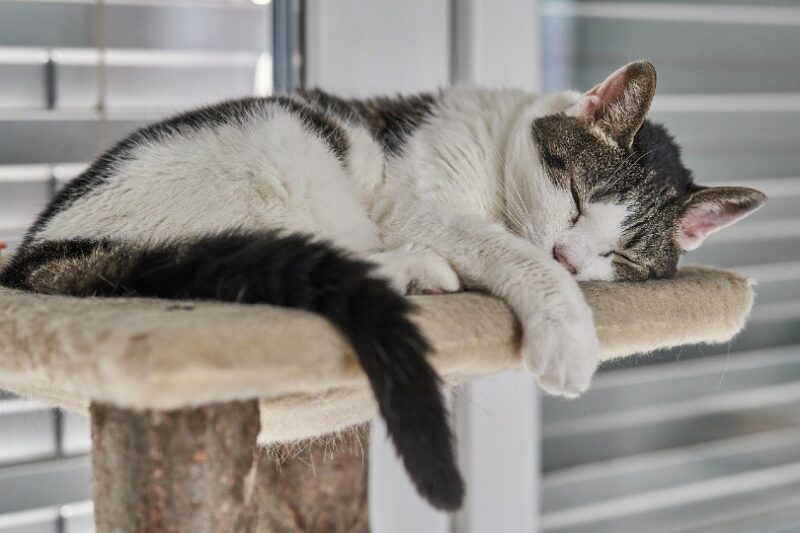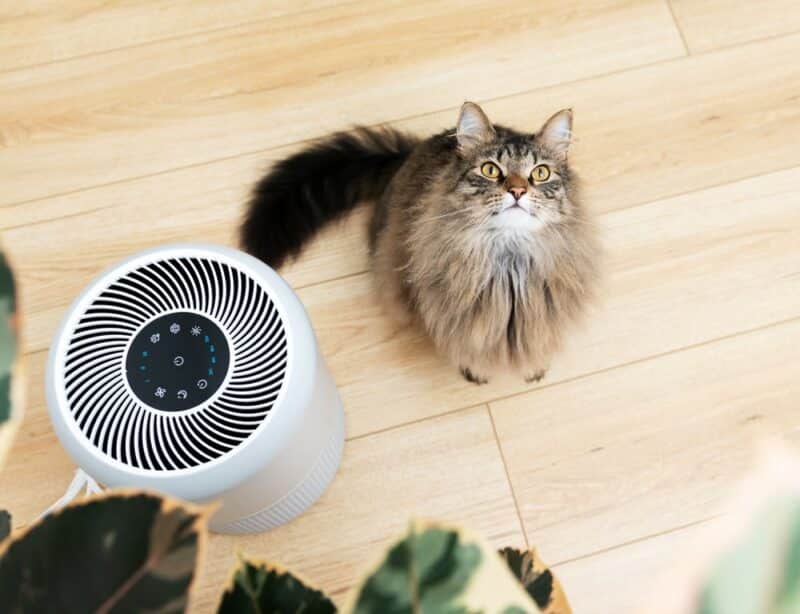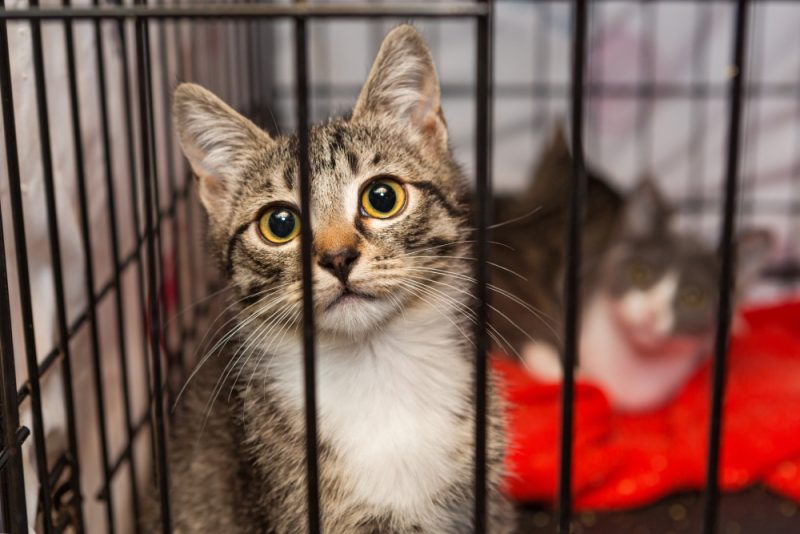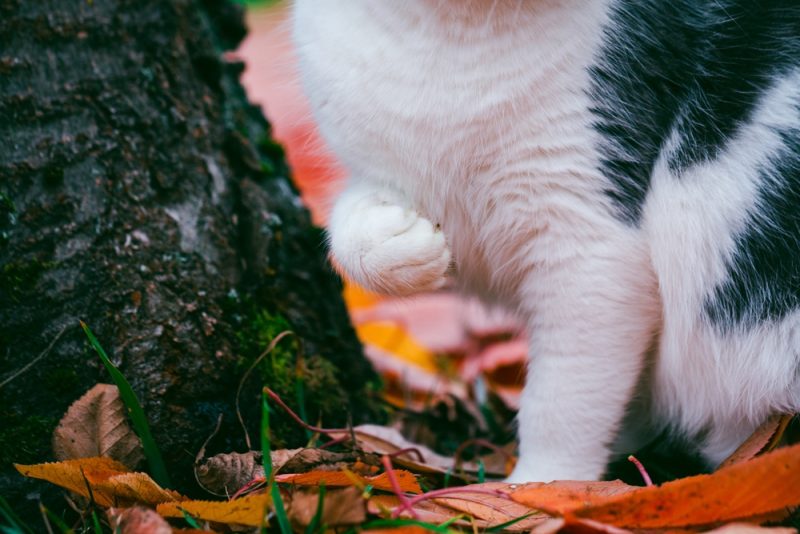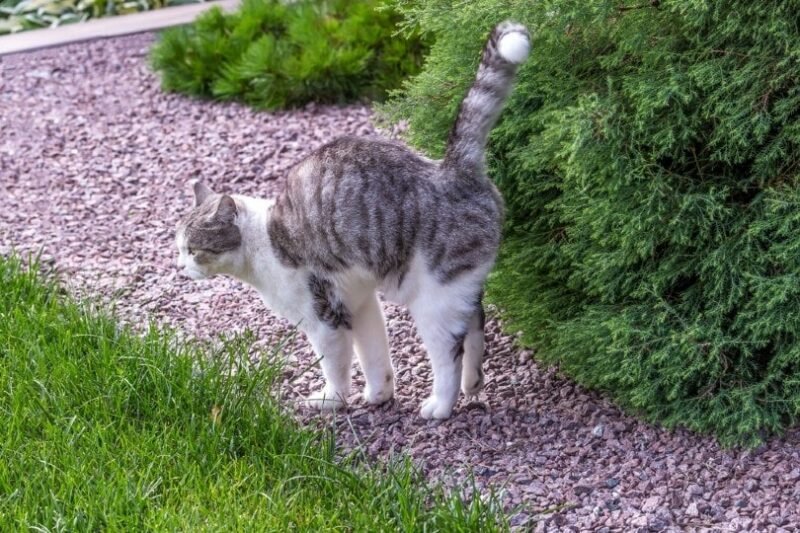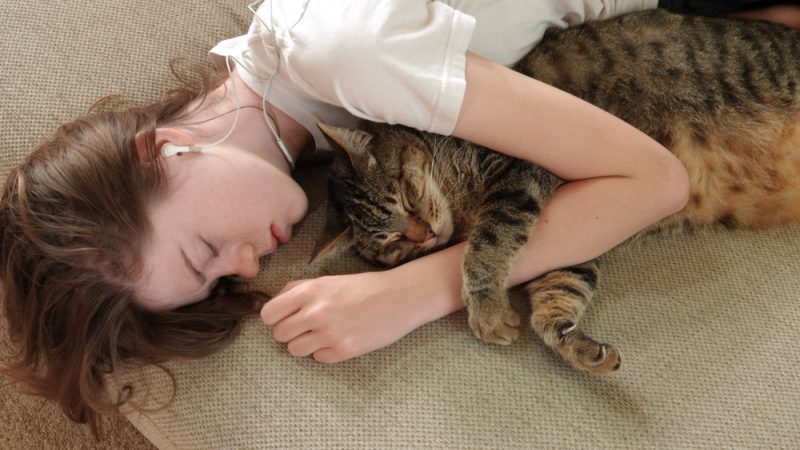Knowing that your cat is having a litter of cute kittens can be exciting, but after they’re born, there’s so much to keep an eye on as a cat owner. If you’ve noticed your cat is moving her kittens, you may be wondering why. Some mother cats will move their kittens for various reasons which we’ll outline below, as well as some tips on how to stop your cat from moving her kittens, so you can ensure your mama cat and her babies stay safe and well.

How to Stop Your Cat From Moving Her Kittens
If your cat is moving her kittens and the location that she’s chosen is completely inappropriate, there are a few things that you can do to encourage her to keep the kittens and nest where it is right now. You may need to use one method or a combination.
1. Handle the Kittens as Little as Possible
While it can be incredibly exciting to have newborn kittens in the house, resist the urge to pick them up and cuddle them. Your queen should be doing a great job of looking after her kittens, and as long as she has a clean nest and access to food, water, and her litter tray, she needs minimal supervision.
If several people come to meet the kittens and even pick them up, the queen will feel threatened. For cats, scent is very important and if the kittens are constantly handled our scent might change theirs. In that case, she may decide to move the kittens to a place where she’s less likely to be disturbed.
Keep human contact to a minimum, you should mainly observe them from a distance to ensure they are all eating and handle them only weigh them if everything is okay. You should also avoid visitors until the kittens are at least 4 weeks old. As the kittens start moving around and exploring on their own, the mother cat will become more relaxed and accepting of people visiting her babies.
2. Keep the Nest Area as Quiet as Possible
As soon as you know your cat is expecting kittens, start thinking about locations for her nest. Most cats will choose a quiet place with low light and few people. While your cat will find somewhere for herself, it might not be a place that will be suitable. You can try to persuade your cat to set up her nest somewhere that meets her criteria and allows you to check on her and her kittens from a distance.
If your cat has decided to build her nest somewhere inappropriate but you decide to leave it where it is, keep the area as quiet and calm as possible. Make sure other pets are kept away from her nest. You can even build a frame or place her nest inside a large crate. Cover the area with blankets to add extra privacy and warmth.
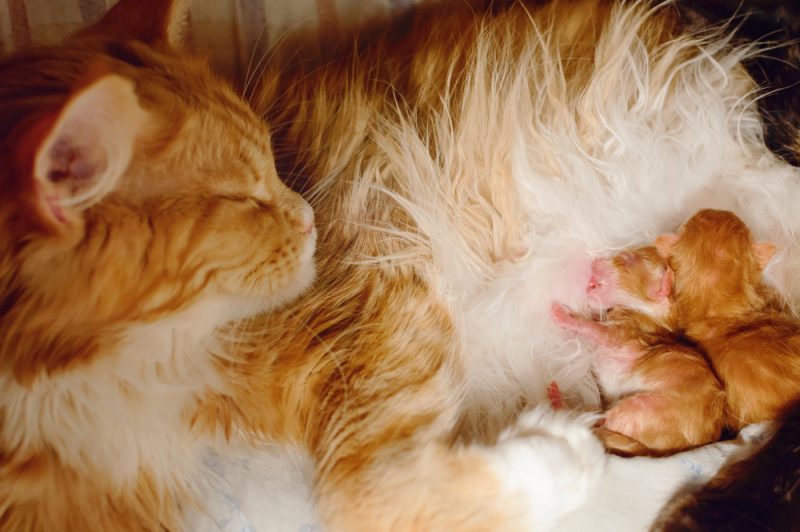
3. Check the Health of the Queen and Kittens
Sometimes a mother cat will move a single kitten if she thinks they may be ill. If you notice your mother cat taking one kitten out of the nest rather than trying to move the whole litter, she may have determined that something isn’t right with that particular kitten. At this point, it’s a good idea to call a vet for guidance. They may do an initial consultation over the phone or ask to examine the mother cat and kittens in person.
If you need to speak with a vet but can't get to one, head over to PangoVet. It's an online service where you can talk to a vet online and get the advice you need for your pet — all at an affordable price!

Mother cats can suffer from various health problems, and any of them may cause her to move her kittens. Mastitis is a very painful infection of the mammary glands. Your cat may need antibiotics, and the kittens could need to be bottle-fed while she recovers.
Eclampsia could happen if nursing cats lose too much calcium during lactation. It can cause panting, muscle tremors, staggering, and seizures. Uterine metritis is an infection that leads to fever, lethargy, decreased milk production, and a bad-smelling discharge from your cat’s uterus. It is a life-threatening condition so she will need immediate veterinary care.
4. Make Sure the Nest Is Warm
A simple tip to stop your cat from moving her kittens is to keep the area warm. Newborn kittens can’t regulate their body temperature, so they need help keeping warm for the first few weeks of life. If there are drafts where your mother cat has made her nest, she may move it to a warmer place. Check that doors and windows are kept shut. You should even consider adding a thermometer to the room so you can keep an eye on the temperature.
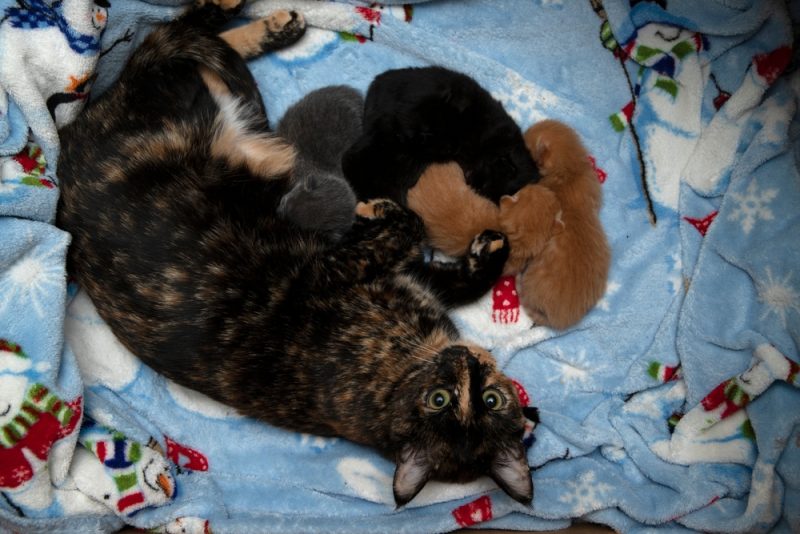
5. Keep the Nest Clean
Cats will instinctively want to keep their kittens somewhere clean. That’s because strong scents can attract predators in the wild, which will put the lives of her kittens in danger. If the nest is becoming dirty, she might move her kittens to a cleaner spot.
As part of your daily check, remove any soiled blankets, clean the litter box thoroughly, and ensure spilled food is cleared away. If the nest and surrounding area are as clean as possible, the mother cat will be more likely to stay in the same spot.

Why Do Mother Cats Move Their Kittens?
While our domestic cats might now be used to a life of comfort, they still retain ingrained habits from their time as wild animals. Mother cats move their kittens for a variety of reasons, including:
- The nest area is too noisy.
- The nest area is too bright.
- One kitten is sick, and she removes them from the litter.
- There are too many human visitors.
- She feels threatened.
- The nest area is dirty.

Final Thoughts
If your cat is determined to move her nest, you may be unable to stop her! If your cat keeps moving her kittens she may have decided there is a threat and may become stressed if she can’t move them. If you’ve tried all these methods and she’s still convinced that moving her kittens is the way to go, you may just need to accept it.
As long as the new location isn’t dangerous, you might help her by providing new clean bedding, moving her food and water bowls, and even carrying some of her kittens to their new nest.
You might also like:
- How to Determine a Kitten’s Age (With Pictures)
- My Cat Keeps Walking Away From Her Kittens, Is It Normal? Vet-Approved Reasons & Facts
Featured Image Credit: Rita_Kochmarjova, Shutterstock
